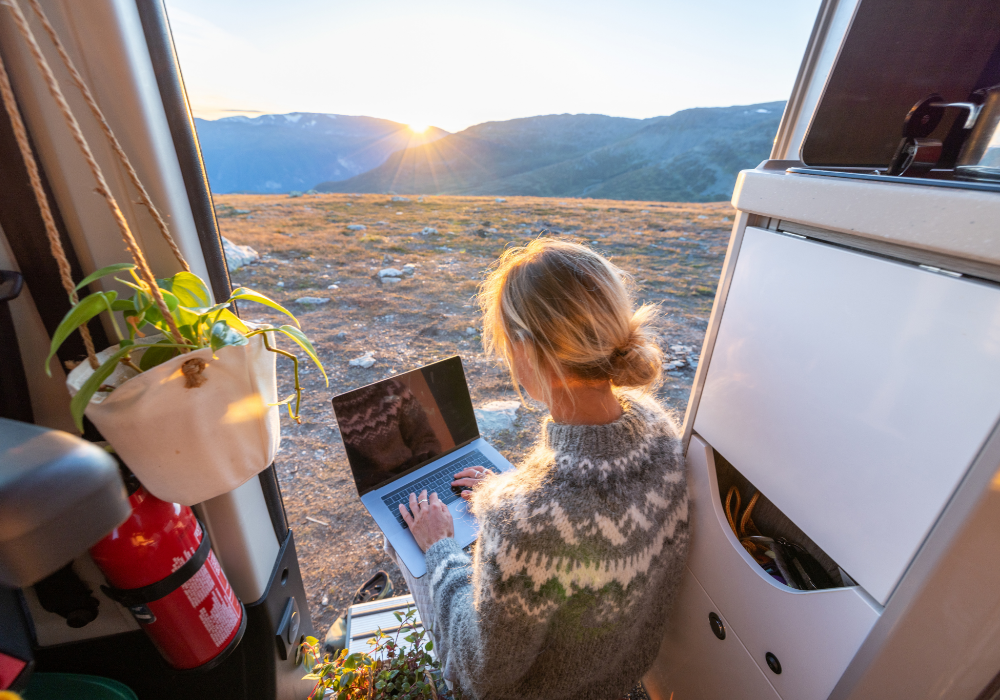Stability used to mean a house with a yard—now it looks more like a one-way ticket.

Owning a home was once considered the ultimate symbol of success. A steady job, a mortgage, and a long-term address meant security, achievement, and adulthood. But for many millennials, that dream has shifted. Instead of pouring savings into a down payment, they’re booking flights, embracing minimalism, and redefining what stability actually means.
Rising housing costs, remote work opportunities, and a growing desire for meaningful experiences have fueled this shift. Prioritizing travel over homeownership isn’t just about escaping responsibility—it’s about designing a life that aligns with personal values. The old idea of settling down in one place no longer resonates when the world offers so many possibilities. Whether it’s financial strategy, personal freedom, or the thrill of exploration, millennials are proving that home isn’t always four walls—it’s anywhere they choose to be.
1. A mortgage or a lifetime of memories? Millennials are choosing differently.

Skyrocketing home prices, stagnant wages, and rising interest rates have made homeownership feel more like a luxury than a milestone. For many millennials, the numbers simply don’t add up. Karryon reports that 71% of Australians under 30 and 65% of those aged 31 to 50 would rather spend their disposable income on travel than on saving for a home in the next 12 months.
Travel offers something a house can’t—constant learning, cultural immersion, and the freedom to move when life demands it. The idea of spending decades paying off a mortgage, only to be tied to one location, doesn’t appeal as much as it once did. Rather than waiting for financial stability to dictate their ability to see the world, millennials are flipping the script—trading permanent addresses for adventure and embracing a lifestyle that prioritizes experience over property ownership.
2. Renting isn’t “throwing money away” when the world is your backyard.

Older generations often warned that renting was a waste of money, a temporary fix before settling down with a mortgage. But millennials are seeing it differently. Owning property ties people to one place, while renting allows for mobility, flexibility, and the freedom to explore.
Without the weight of property taxes, maintenance costs, and long-term financial commitments, renters can shift their spending toward experiences rather than equity. Money‘s Sarah Hansen highlights that 24.7% of millennials in 2022 planned to “always rent” rather than buy a house. Many are choosing short-term rentals, digital nomad hubs, and international stays that make it easier to embrace a travel-centric lifestyle.
The cost of living in some global cities is even lower than in major U.S. cities, making extended travel not only possible but financially smarter. When adventure is a priority, renting isn’t a setback—it’s a strategic choice that keeps doors open to new possibilities.
3. Remote work isn’t just a perk—it’s a passport to a new lifestyle.

The traditional office grind is fading fast, and remote work is stepping in to take its place. With more companies offering location-independent roles, millennials are no longer tied to a single city or even a single country. The idea of working from anywhere has gone from dream to reality, and many are taking full advantage.
Instead of clocking in from a cubicle, remote workers are logging on from beachside cafes in Thailand, mountain retreats in Colombia, and coworking spaces in Portugal. This shift isn’t just about convenience—it’s about a complete redefinition of work-life balance.
According to MBO Partners, 17.3 million American workers currently describe themselves as digital nomads, reflecting a 131% increase from 2019 to 2022. With technology making global connectivity seamless, millennials are proving that a career and a love for travel don’t have to be at odds.
4. Living for the weekends is outdated—why not live for today?

The idea of working nonstop for decades just to enjoy life in retirement no longer holds the same appeal. Millennials have seen firsthand how waiting for the “perfect time” to travel, explore, or pursue passions often means missing out altogether. Instead of putting off adventure until later in life, they’re making it a priority now.
Travel isn’t just a luxury—it’s a way to learn, grow, and experience the world in real time. Choosing to explore new cultures, meet people from different backgrounds, and step outside comfort zones isn’t an escape from responsibility; it’s an investment in a richer, more fulfilling life. Rather than deferring happiness to an uncertain future, millennials are flipping the script, proving that meaningful experiences shouldn’t be put on hold.
5. Simplicity beats excess, and minimalism makes travel easier.

Owning less means more freedom, and that’s a lesson millennials have embraced wholeheartedly. The white picket fence dream came with clutter—both physical and financial. A big house means furniture, maintenance, insurance, and constant upkeep, all of which require time, money, and energy. Travel offers something different: the ability to live lightly and focus on experiences instead of possessions.
Minimalism isn’t just about decluttering—it’s a mindset that prioritizes freedom over accumulation. By keeping belongings to a minimum, millennials are able to move, adapt, and embrace new opportunities without being tied down by material things. A backpack or a suitcase can hold everything needed for a full life, and when adventure calls, there’s no mortgage, storage unit, or excess baggage to hold them back.
6. Homeownership doesn’t guarantee security—but adaptability does.

Buying a house was once considered the ultimate sign of stability, but for many millennials, it now feels more like a gamble. The housing market is unpredictable, the economy is constantly shifting, and job security isn’t what it used to be. Instead of locking themselves into a mortgage and hoping for the best, millennials are redefining what security means.
Adaptability has become the new safety net. The ability to pivot, move, and adjust to life’s changes is proving to be just as valuable—if not more—than a fixed address. A home may provide a sense of permanence, but it doesn’t necessarily provide freedom. For many, the choice to explore the world, develop new skills, and embrace change feels far more secure than being tied to one location for decades.
7. The world is a classroom, and millennials are eager to learn.

Textbooks and traditional education can only teach so much. Travel, on the other hand, offers real-world lessons that no classroom can match. Immersing in different cultures, learning new languages, and experiencing global perspectives firsthand provide a depth of understanding that structured education often lacks.
For millennials, travel isn’t just about sightseeing—it’s about expanding knowledge and developing a more well-rounded view of the world. From working abroad to volunteering in new communities, they’re choosing experiences that challenge them, broaden their perspectives, and make them more adaptable. Learning doesn’t stop after college, and the world is proving to be the best teacher.
8. Traditional success doesn’t hold the same weight anymore.

Climbing the corporate ladder, buying a home, and settling into a routine were once seen as the markers of a successful life. But for millennials, success is being redefined. Personal growth, fulfillment, and flexibility are taking priority over rigid milestones.
Happiness isn’t about accumulating wealth or status—it’s about designing a life that feels meaningful. Whether that means starting a business from a laptop in Bali or hopping between countries while working as a freelancer, success looks different for everyone. The ability to craft a lifestyle based on passion, rather than societal expectations, is what makes this shift so powerful.
9. Connection is stronger on the road than in a cubicle.

Social media has made it easier than ever to stay connected, but for many, true connection comes from shared experiences, not virtual interactions. Traveling fosters deep, meaningful relationships with people from all walks of life. Whether it’s bonding with fellow travelers, learning from locals, or experiencing different cultures firsthand, the road offers a kind of human connection that office life rarely does.
Millennials are finding community in new places, forming friendships across borders, and proving that relationships aren’t bound by geography. The digital age has made global friendships possible, but real-world experiences are what make them meaningful.
10. The memories are worth more than the mortgage payments.

A house can hold a lifetime of memories, but for many millennials, the world itself is their home. The idea of trading life experiences for financial debt doesn’t appeal the way it once did. Instead of tying up income in property investments, many are choosing to spend their money on travel, adventure, and personal growth.
Experiences shape identity, build character, and create stories that last a lifetime. The security of homeownership may work for some, but for those who crave the unknown, the investment in travel pays off in ways no mortgage ever could.